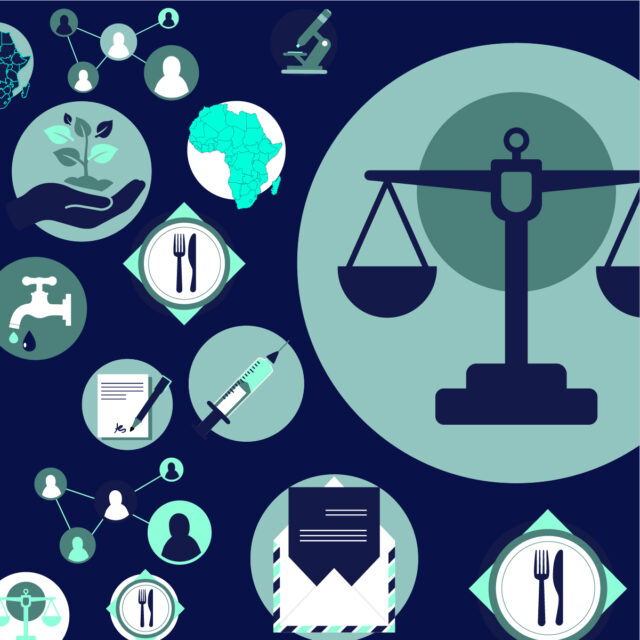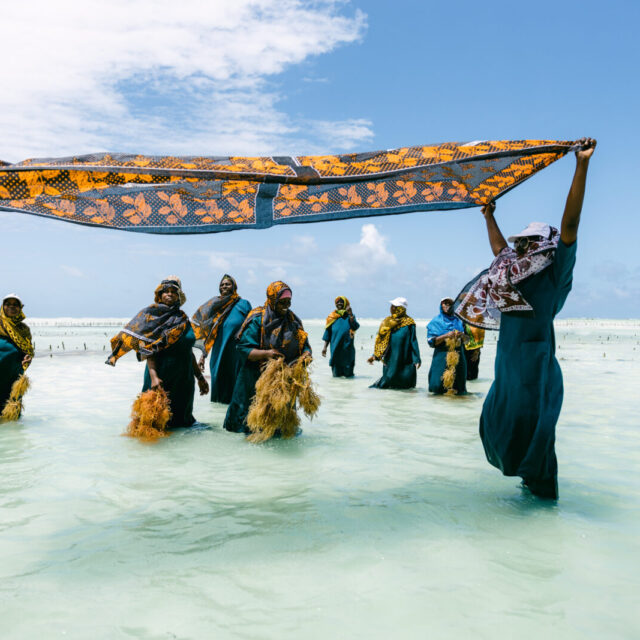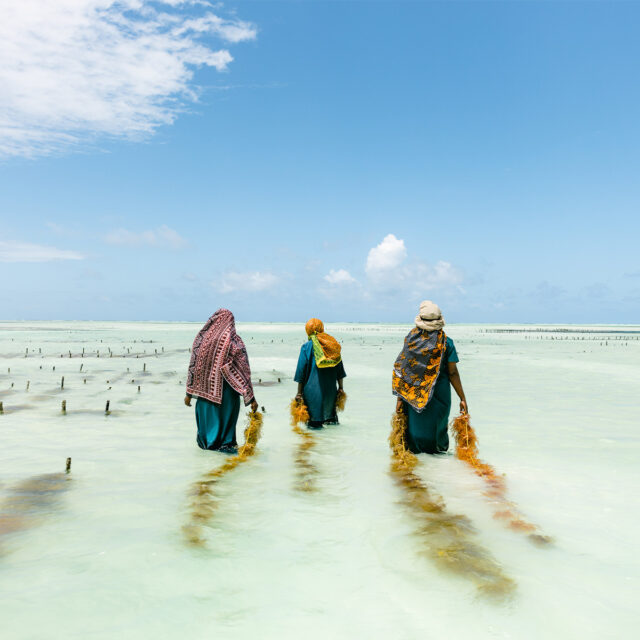Top news
African Marshall Plan: President Emmanuel Macron agreed to share 20% of France’s IMF-allocated emergency funds, Special Drawing Rights. This is a good move. But it risks setting a low bar for the remaining G7 countries — which will receive $282.8 billion SDRs even though they don’t need them. (In fact, some G7 countries may have economic rebounds so promising that the US will see its fastest growth rate since 1894.) Last week, African leaders continued calls for rich countries to recycle at least $100 billion of SDRs. DRC’s Felix Tshisekedi called for autonomy over charity, while Ghana’s Nana Akufo-Addo equated them to an “African Marshall Plan.” If other G7 countries follow suit and only commit 20% of their SDRs, they will struggle to meet their $100 billion commitment, even if they count the share Africa has already received from the IMF.
Transport collapse: The cost of natural gas soared to jaw-dropping highs in the UK, leaving millions without suppliers as power companies collapse. Pandemic- and Brexit-related truck driver shortages are exacerbating the spike’s impacts and causing shortages at the fuel pump — a harbinger of the transport industry’s dire warning that the pandemic could fuel “a global transport system collapse” without access to vaccines and eased movement restrictions. #VaccinEquity.
Solidarity risk: Macron doubled the country’s vaccine pledge this week, promising that 120 million vaccines will be delivered by the end of this year. He also urged for greater transparency and accountability on the conditions and volumes of COVID-19 vaccines purchased — lamenting the risk of pharmaceutical companies’ “profit made in the name of solidarity.” Also this week, Ireland made its first dose sharing commitment, and Croatia and Spain both upped their vaccine antes.
Not a typo: One-fifth of Nigeria’s workforce lost their jobs because of COVID. This crisis pushed Nigeria’s unemployment rate to nearly 60% in the final quarter of 2020, impacting 91.4 million people. Meanwhile, Africa’s largest economy is projected to grow less than 2% in 2021, driven (of course) by vaccine inequity in the face of a third wave, underlying economic weakness, and a continued lack of forex liquidity. The latter of which could be alleviated by a heaping dose of SDR allocations.
Cuts where it hurts: The UK shared details of its 40% aid cuts, which reduces both health and climate spending… amid a global pandemic and code red warnings on rising temperatures. Kenya took a massive hit alongside other East African countries, which one expert deemed “outrageous and hypocritical.” Meanwhile, some scenarios for further cuts to existing aid — and counting vaccines and SDRs as ODA — could transform the UK into “a development minnow.”
Rewriting the rules: COVAX met this week to rewrite its dose allocation rules after it came to light that the UK received 25 times more doses than Botswana. COVAX initially intended to be the world’s COVID vaccine clearing house that gave doses to member countries based on population size. But bilateral deals brokered by rich nations worked outside of this system and tilted the scales towards massive and worsening vaccine inequity.
A good aftershock, for once: India approved a new DNA-based COVID-19 vaccine that remains stable at much higher temperatures than its mRNA-based counterparts, making it easier to transport to remote areas. It is only 66.6% effective at preventing symptomatic cases, but experts argue that this development, and those for mRNA vaccines, could help pioneer treatments for HIV and cancer-fighting vaccines — innovation that was turbocharged due to the pandemic. Next up: a COVID-19 and cancer vaccine plant in South Africa that will begin producing vaccines for the continent in 2022.
Breath of fresh air: The cost of oxygen in Kenya is 10 times higher than in the UK, an injustice that may be eased by a new localized production model that expands access while lowering costs of this critical supply. Its success could also expand access to oxygen in Uganda and Tanzania, which is welcome news as the African continent has the second-lowest liquid oxygen production capacity globally.
Fragile and faltering: Somalia has only one qualified surgeon per 1 million people, after decades of conflict in Somalia ravaged the country’s health infrastructure (the UK has one per 1,840). The country has 46 ICU beds and 15 ventilators. Experts warn increasing tensions between President Mohamed Abdullahi Mohamed and Prime Minister Mohamed Hussein Roble could escalate into civil war as the country battles a fourth wave of COVID. As we’ve seen in Ethiopia, a conflict could shatter the country’s precarious toehold on a vaccination rollout, which has reached only 1.3% of the population.
Dire resistance: Malaria parasites in Africa are resistant to frontline drugs, throwing a wrench in efforts to eliminate the disease and raising concerns of a potential “super-resistant” dominant malaria strain. Africa bears 90% of global infections, and COVID-19 is derailing progress in the fight against malaria. Meanwhile, climate change could bring malaria back to parts of Europe as rising temperatures create the perfect incubation grounds for the parasite. Now is a great time to invest in better health infrastructure to fight all of the above.
Mixed messages: The US announced this week it would loosen travel restrictions, allowing entry to anyone fully vaccinated, except those who received the Sputnik V vaccine. This policy will disproportionately affect travelers from Russia and low-income nations; 1.8 million Sputnik V doses have been allocated to 10 African countries, while an additional nine countries have approved the vaccine. Meanwhile, Britain has been accused of vaccine hypocrisy and discrimination for newly announced travel rules that only recognize travelers who received Western pharmaceutical vaccines in EU countries as fully vaccinated (excluding the bulk of those who received their COVAX donations). These policies don’t just restrict movement and threaten supply chains — they reinforce pockets of vaccine hesitancy in Africa.
Into the crypto-verse: Nigeria is set to launch e-Naira this week, a government-centralized alternative to the banned (but popular) cryptocurrencies in the country. Despite being in its infancy and filled with major concerns of volatility and instability, Nigerians are increasingly shifting towards these transactions, as they are faster and more efficient, especially in the wake of the COVID-19 economic fallout. Nigeria will prove an interesting test case, as El Salvador stumbles through its bitcoin adoption and Ghana trials its e-Cedi cryptocurrency this month.
Grande crisis: Evergrande, a giant Chinese property company, is $300 billion in debt and risks defaulting on its payments unless Beijing intervenes (an open question). A new Aid Data report reveals that at least 42 countries, including 22 in Africa, have levels of public debt exposure to China in excess of 10% of GDP. The aftershocks of a default “could spread across the world’s financial system and freeze credit markets around the world.” This could be China’s “Lehman moment.” Yikes.
The numbers
- 7 COVID-19 tests are performed in the Netherlands for every one test performed in Senegal, despite the latter having a vaccination rate 14 times lower.
- 117,785: The latest daily number of vaccines administered in South Africa, the lowest number in over a month.
- 14,244.4%: Benin’s increase in cases from the country’s low this summer, as it struggles to contain a fourth wave.
More reads
- Rasna Warah explores how limited spending, bad governance, and over-stretched facilities put Somalia’s healthcare system in critical condition.
- Also from Rasna, a corruption scandal in Kenya undermined a cash transfer system meant to alleviate COVID-19’s economic impacts for the most vulnerable.
- Save the Date: How can we stop the great divergence in pandemic recovery? Join ONE and the Paris Peace Forum next Thursday, 7 October 16:00 – 17:00 BST for a discussion on Twitter and LinkedIn.
- Rich countries are flouting the global vaccine system, and “money isn’t the problem. Power is,” argues Rosemary Flowers-Wanjie, a senior policy analyst at Development Reimagined.
- A promising daily treatment for COVID-19 could prevent serious illness — and it could also help prevent infection after exposure.
- Despite ranking highest in pandemic preparedness, the US was woefully under-equipped to tackle COVID-19. Future disease outbreaks are inevitable, but repeating the same mistakes isn’t.
- Community engagement and digital infrastructure helped make Botswana and Rwanda leaders in vaccine rollout. Liya Temeselew Mamo lays out how other African countries can follow suit.



